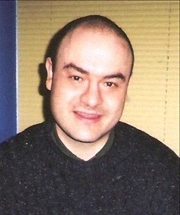Tutor HuntResources Philosophy Resources
Coleridgean Ethico-epistemology Part Ii
the continuation of my essay on Coleridge`s ethico-epistemology
Date : 30/09/2013
Author Information

Uploaded by : Daniel
Uploaded on : 30/09/2013
Subject : Philosophy
But given Coleridge's polarised logical scheme as the ultimate principle and unifying vehicle of all his systematically orchestrated conceptual developments, creation will not have any genuine alterity from the Creator, as lacking a requisite space of freedom from - and for - God. Any genuine ethical relationship, and by extension, any truly revelatory, and thus ethically transformational communication between creator and creature will become impossible, as that which is existentially salvific, that which we truly need to be revealed to us, must necessarily be beyond our fallible conceptual resources, as Kierkegaard perceives in his Philosophical Fragments and Concluding Unscientific Postscri pt.
Thus, in order to arrive at a 'totalising' systematic completion philosophically, Coleridge has to surrender that metaphysical dualism which is a condition for the conception of free personal wills, human and divine. Thereby Coleridge is forced to surrender the very ethical position that he set out in the first place to defend, through transcendental argument, in his Opus Maximum. Hence I conclude that Coleridge's metaphysical urge to complete systematic explanation stands in the way of his equally deep-seated commitment to a theology of free will, human and divine, and so bars any genuine concept of Christian salvation, through creaturely openness to divine grace.
This resource was uploaded by: Daniel
Other articles by this author
- The theological problem of Coleridge`s ethico-epistemology
- Kierkegaardian Faith and Romantic Aesthetics
- Kantian Imagination: a new approach
- The Being of Beings or the Music of Paradox? Kierkegaard`s aesthetic of inwardness
- Aquinas`s account of the naming of God
- The theological significance of Heidegger`s later philosophy
- The Christological teaching of the council of Chalcedon, A.D. 451
- Christology essay part II
- Heidegger essay, part II
- Kantian imagination, Part II
- Kierkegaard and romantic aesthetics, part II
- Kierkegaard part II
- 1914: Christendom at the Cross
